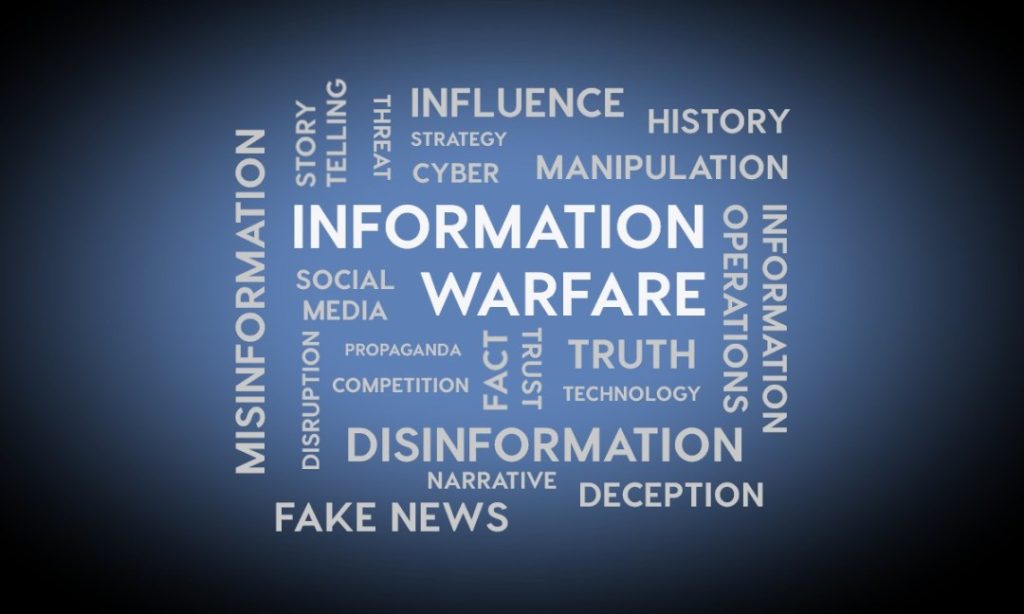Listen to the article
In the global battle for information dominance, sophisticated disinformation networks are emerging as one of the greatest challenges facing democratic societies. Security experts warn that China, Russia, and Iran have developed an extensive international web of news outlets, podcasters, media platforms, and social media influencers specifically designed to promote authoritarianism while undermining confidence in Western democracies.
Recent analysis shows these coordinated efforts have successfully pushed fringe political views into mainstream discourse, allowing demonstrably false narratives about democratic governments to persist for years. The phenomenon creates a dangerous ecosystem where intentional disinformation spawns broader misinformation as unwitting actors spread these narratives further.
Public opinion research reveals the alarming effectiveness of these campaigns. Surveys conducted across democratic nations show approximately one-third of Americans now question whether media should operate without government censorship. Nearly 20 percent of respondents believe NATO has outlived its usefulness, while 37 percent oppose U.S. economic development aid to developing nations.
“Each of these beliefs stems directly from disinformation campaigns that exaggerate the risks of free speech, distort the balance of responsibilities in Western alliances, and mischaracterize the purpose and impact of foreign aid initiatives,” explains Artur Kalandarov, who studied misinformation narratives at Stanford’s Center for Russian, East European, and Eurasian Studies.
Security analysts warn that without coordinated counter-efforts, the United States risks losing this global information war, potentially undermining its ability to maintain a stable, rules-based international order. The stakes extend beyond mere messaging disputes to affect concrete foreign policy objectives and international cooperation.
While no single solution exists, experts have identified four key strategies to combat this challenge. First, democratic nations must proactively frame global events with fact-based narratives favorable to democratic values rather than merely reacting to false claims. For example, while Russia and China frequently portray their relationship as an equal partnership, the reality of Russia’s junior status and dependence on Beijing is rarely highlighted by Western governments.
Second, free societies must better utilize existing communication channels. Government press offices, social media platforms, and international forums provide ready-made opportunities to elevate democratic perspectives. Traditional government-sponsored media like Voice of America and Radio Free Europe/Radio Liberty have faced funding cuts precisely when authoritarian systems show signs of vulnerability.
“Russia’s abandonment of the Assad regime in Syria represents a geopolitical defeat that the United States has failed to capitalize on in the court of public opinion,” notes Kalandarov.
The third approach involves developing policies to limit the spread of verifiably false information, drawing on growing research in misinformation psychology. A 2022 UK study found that “prebunking” – explaining how false news is structured – effectively inoculates some media consumers against disinformation. Similarly, prompting viewers to evaluate headline accuracy reduces sharing of false content.
Security experts advocate for bipartisan efforts to encourage social media platforms to implement research-backed guidance to help contain harmful falsehoods that have disrupted America’s political landscape.
Finally, democratic messaging must balance acknowledging historical mistakes with highlighting Western democracies’ significant achievements. These include the post-World War II Marshall Plan, Japan’s democratization, and the successful integration of former communist states into Europe after the Cold War. More recent successes like President George W. Bush’s HIV reduction initiatives in Africa and Operation Warp Speed’s rapid development and distribution of COVID-19 vaccines demonstrate democratic nations’ ongoing commitment to global welfare.
Experts emphasize that winning this information war requires both defending historical truths and accurately representing current realities. A coordinated, bipartisan approach to countering disinformation would support more effective domestic and foreign policy while potentially reducing one of the most divisive forces in contemporary democratic societies.
As information warfare intensifies, the ability of democracies to effectively communicate truth remains essential not just for international influence but for the health of civil discourse within their own borders.
Fact Checker
Verify the accuracy of this article using The Disinformation Commission analysis and real-time sources.




10 Comments
The data showing eroding public trust in Western institutions and media is quite concerning. Do you think tighter regulation of social media platforms and greater transparency around political ads could help turn the tide?
Those are certainly promising avenues to explore. Any solutions will need to balance the need for free speech with the imperative to combat malicious disinformation campaigns.
As someone with an interest in commodities and energy, I’m curious about how these disinformation tactics may be affecting public discourse and policy decisions in those sectors. Have you seen any examples of how it’s playing out there?
That’s an insightful question. Disinformation campaigns could definitely sow doubt around issues like climate change, renewable energy, or the environmental impact of mining and resource extraction. Careful monitoring and fact-checking in these areas will be vital.
This is a worrying trend that requires a robust and coordinated response from democratic societies. While there are no easy answers, I’m hopeful that a renewed commitment to truth, transparency and civic education can help turn the tide against malicious disinformation.
Well said. Upholding democratic values and critical thinking skills among the public will be key to countering these insidious efforts to undermine faith in our institutions. It’s a challenge, but one we must rise to meet.
Interesting article on the challenges democratic societies face from coordinated disinformation campaigns. It’s concerning to see how such narratives can spread and erode public trust. What strategies do you think could help counter this threat effectively?
Improving media literacy and critical thinking skills among the public seems key. Governments and tech platforms also need to be more proactive in identifying and addressing disinformation before it goes viral.
This is a complex issue with no easy solutions. While the spread of misinformation is worrying, I’m curious to hear more about the specific strategies the West could employ to regain the upper hand in the global information battle.
Increased investment in public media, fact-checking initiatives, and digital citizenship education could be a start. Coordination between governments, tech firms, and civil society will also be crucial.